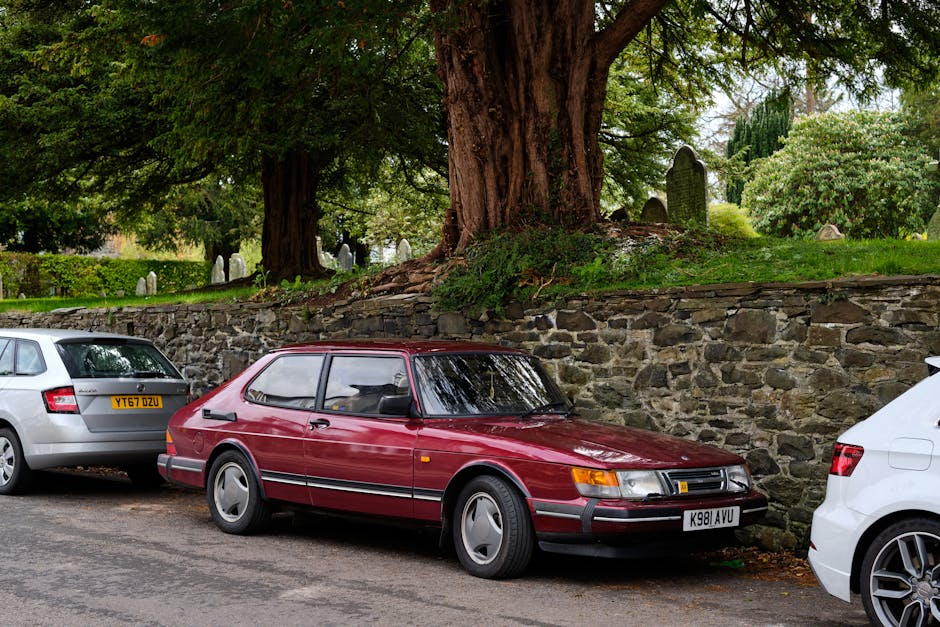 Swipe for more categories
Swipe for more categories 
Solar Car Facts
Solar Car Facts
In recent years, the surge in the demand for sustainable and environmentally friendly transportation options has peaked the interest in solar cars. These eco-efficiency marvels use renewable solar energy, harnessed through panels installed on the vehicles, making them a potential solution to the current environmental and energy crises.
Yet, how much do we really know about solar cars? Do they have the potential to replace our traditional petrol/diesel vehicles? In this blog post, we will dive deep into the world of solar-powered vehicles, unpacking intriguing facts and dispelling common myths. Whether you’re an eco-enthusiast, a car lover or a curious reader, join us as we explore the ins and outs of solar automobiles, their potentials, limitations, and prospective future implications.
Invention and History of Solar Cars: An analysis of the inception and evolution of solar cars, from the early inventors to the present-day models.

The invention of solar cars dates back to the 1950s, sparked by a surge in interest in solar energy.
The early attempts at creating sun-fueled vehicles were humble and simplistic. These were not the aerodynamic, energy-efficient models we see today but served as an essential foundation.
In the late 70s and early 80s, there was a significant spike in solar car development, influenced by the ever-increasing oil prices. Universities and corporations alike began investing in these potentially earth-saving vehicles.
Fast forward to the present day; solar cars have undergone substantial advancements. The streamlined designs are not just for aesthetic appeal but also serve a significant role in energy conservation.
From the rudimentary designs of the early inventors to today’s refined models, solar cars have indeed come a long way in quest of alternative, sustainable energy solutions.
How Does a Solar Car Work?: Explanation of the functioning of a solar car, i.e., how they convert sun’s energy into electricity to propel the car.

A solar car harnesses the power of the sun’s energy to run. This unique process begins with solar panels typically mounted on the vehicle’s surface. These panels are designed to capture and convert the sun’s energy into electricity.
This electricity is then directed to a battery that stores the energy. When the vehicle is in motion, the stored energy from the battery powers an electric motor, which then propels the car forward. This conversion process is all possible thanks to the photovoltaic cells in the solar panels. These cells transform sunlight into electricity, creating a zero-emission, sustainable source of power for transportation.
The solar car, thereby, represents a compelling fusion of advanced automotive and renewable energy technology, promising an eco-friendlier future for road transport.
Types of Solar Cars: Defining and explaining the different types of solar cars, including solar electric vehicles (SEVs) and solar hybrid vehicles.

Solar vehicles are increasingly playing a noteworthy role in the automobile industry. These environmentally-friendly alternatives come in different types; mainly Solar Electric Vehicles (SEVs) and Solar Hybrid Vehicles.
SEVs, as the name suggests, are solely powered using solar energy. Solar panels are installed on the vehicle’s surface to convert sunlight into electric energy, powering the vehicle’s motor directly.
On the other hand, Solar Hybrid Vehicles combine solar energy with traditional internal combustion engine or electric propulsion systems. They showcase versatility, utilizing solar power while there’s abundant sunlight and resorting to the alternative power source in less sunny conditions.
Each type provides a unique approach to sustainable transportation, emphasizing the automobile industry’s continued shift towards environmental awareness and reduction of carbon footprints.
Benefits of Solar Cars: Discussing the many advantages of solar cars, such as zero emissions, sustainability, and potential cost savings over time.

Solar cars offer numerous benefits. They generate zero carbon emissions, contributing to cleaner air and reducing our dependence on fossil fuels. Unlike traditional cars, they use renewable energy sourced directly from the sun, marking a significant step toward sustainable transportation.
Moreover, solar cars offer potential cost savings over time. Although the upfront costs may be higher, the long-term operational costs are significantly lower. Fuel costs are virtually non-existent, and maintenance costs are reduced due to fewer mechanical parts.
Not only beneficial to the environment, but solar cars also promote economic sustainability. Embracing solar technology now will pave the way for a greener, more economical automotive future.
The potential of solar cars is yet to be fully realized, but what we know for sure is the future of motoring is looking a lot brighter and cleaner.
Limitations of Solar Cars: Shedding light on the challenges and limitations faced by solar cars at present like charging issues, dependency on weather, limited range and high upfront cost.
While the idea of solar cars is undoubtedly appealing, they still face numerous hurdles in today’s market. One of the main drawback relates to charging. Despite advancements, solar panels cannot yet provide the same level of energy efficiency as conventional engines.
Moreover, solar cars are heavily dependent on weather conditions. They are less efficient during cloudy days and cannot function at all during the night without battery storage systems.
Another consideration is the limited range of solar cars. Without direct sunlight to charge, these cars can only cover a limited distance, significantly limiting their practical use.
Lastly, the high upfront costs of solar cars makes them less accessible to many consumers. Implementing the advanced technology has a high price tag, making these eco-friendly cars a luxury rather than a mainstream transportation option.
It’s clear that while solar cars hold major promise, they currently face certain barriers that need to be overcome.
The Components of Solar Cars: Detailed look into the parts that make up a solar car like solar panels, batteries, electric motor, etc.

Solar cars have several prominent components that enable their functioning.
At the forefront is the solar panel, which absorbs sunlight and converts it into electricity. This powerhouse is often found atop the car and is the car’s primary energy source.
Then we have the battery which acts as a storage unit. It keeps surplus energy in reserve for use when the solar panels aren’t generating enough power – like during nighttime or cloudy days.
Next is the charge controller. It protects the battery from overcharging by regulating the power flow.
And finally, there’s the electric motor. This device transforms the stored electric energy into mechanical energy which propels the car forward.
Each component plays a vital role making solar cars an efficient and eco-friendly transportation option.
Current Market of Solar Cars: A brief synopsis of the current solar car market, including top manufacturers and popular models.

The solar car market is currently gaining momentum, with several key players leading the charge.
Tesla, known globally for their electric vehicles, are also tapping into solar car production. Their popular model, the Cybertruck, already features built-in solar panels.
Toyota, a long-time leader in the hybrid car space, is also venturing into solar cars with their 2019 Prius model capable of being powered by solar.
Meanwhile, Sono Motors, a German startup, is set to release the Sion, a fully solar-powered car in 2023. They’ve leveraged the power of community to fund the development of this innovative vehicle.
Lightyear One, another upcoming model, promises an impressive 450 miles of range on a full charge.
These are just a glimpse into the growing solar car market. It’s an exciting time to witness the rise of renewable energy on the road.
Future of Solar Cars: Discussing the potential future and aspects of growth of solar cars, such as advancements in technology and increasing public interest in sustainable transportation.

As we look to the future, solar cars present a fascinating and sustainable avenue for transportation.
With technology constantly evolving, these solar-powered vehicles are expected to become an integral part of our daily commutes. Some advancements on the horizon include higher-efficiency solar panels, longer-lasting batteries and more aerodynamic designs that will maximize the use of sunlight for energy.
Aside from these technological advancements, there’s also a rising public interest in sustainable transportation. The commitment to environmental consciousness is driving more people to consider solar vehicles as a viable and eco-friendly alternative.
While solar cars today are still an emerging market, they hold vast potential and promise for the future. As we continue to tread the path of sustainability, these solar-powered marvels could very well change the way we think about mobility.


